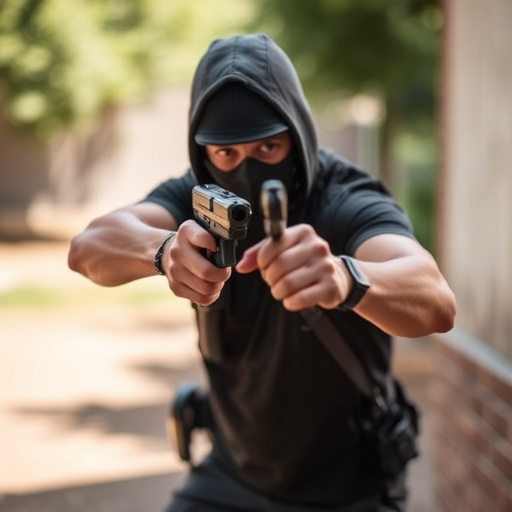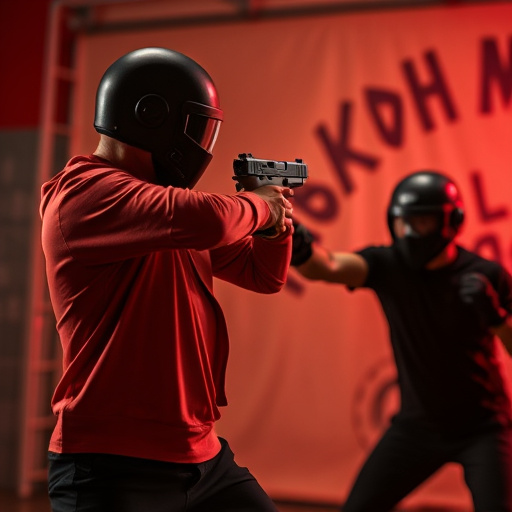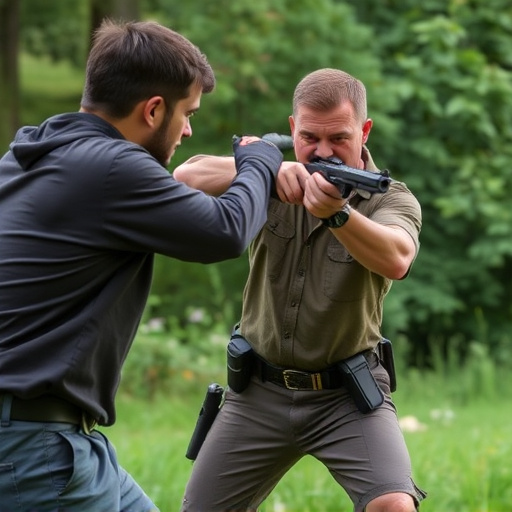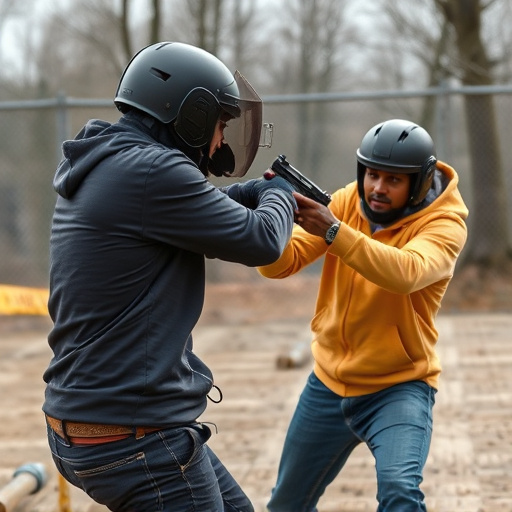Civilian ownership of concealed stun gun flashlight combos in the U.S. varies greatly by state due to differing public safety views and local law enforcement influence. While some states permit unrestricted ownership, others require rigorous training, licensing through Concealed Carry Permits (CCPs), and specific device types focused on genuine self-defense. Understanding and adhering to these state-by-state rules is vital for legal ownership of these dual-function tools, balancing personal protection with public safety regulations.
In today’s world, understanding civilian taser ownership requirements is more crucial than ever. This comprehensive guide explores state-by-state regulations surrounding the legalities of civilian tasers, with a specific focus on concealed carry permits and unique considerations for stun gun flashlight combos. Whether you’re a law-abiding citizen or a self-defense enthusiast, knowing your rights and responsibilities is essential. Discover the varying laws and ensure you stay compliant with local regulations regarding these powerful personal protection tools.
- State-by-State Regulations: Legalities of Civilian Taser Ownership
- Concealed Carry Permits: Requirements and Restrictions
- Stun Gun Flashlight Combos: What You Need to Know Legally
State-by-State Regulations: Legalities of Civilian Taser Ownership

In the United States, the legal landscape surrounding civilian taser ownership varies significantly from state to state, with each jurisdiction establishing its own set of regulations and restrictions. This diversity in laws creates a complex web for individuals interested in obtaining and carrying concealed stun gun flashlight combos. Understanding these state-by-state requirements is crucial for those seeking to exercise their right to self-defense while adhering to legal boundaries.
Some states, like Texas and Florida, have relatively lenient regulations, allowing citizens to own tasers without a permit, while others, such as California and New York, impose stringent restrictions, including mandatory training and licensing. These variations can be attributed to differing perceptions of public safety, the influence of local law enforcement agencies, and the specific needs or concerns within each state. Navigating these regulations is essential for responsible citizens looking to arm themselves with a concealed stun gun flashlight combo while ensuring they remain within the legal framework.
Concealed Carry Permits: Requirements and Restrictions

In many states, civilian ownership of a concealed stun gun flashlight combo is regulated by specific laws regarding Concealed Carry Permits (CCPs). These permits are designed to ensure public safety while allowing responsible individuals to carry self-defense tools. The requirements for obtaining a CCP vary widely across the US, with some states having strict criteria and others offering more lenient regulations.
Generally, applicants must meet certain eligibility standards such as being at least 21 years old (or 18 in some states), passing a background check, completing a safety training course, and demonstrating good moral character. Some jurisdictions also mandate specific types of stun devices approved for CCP carry, focusing on models designed for self-defense rather than those marketed as toys or for entertainment purposes. This ensures that citizens are equipped with reliable tools while adhering to legal restrictions.
Stun Gun Flashlight Combos: What You Need to Know Legally

In many states, the combination of a stun gun and flashlight is growing in popularity among civilians for personal protection. These concealed stun gun flashlight combos offer dual functionality, allowing users to both illuminate their surroundings and deter potential threats with a non-lethal force tool. However, it’s crucial to understand the legal requirements before purchasing one of these devices.
State laws vary significantly regarding the regulation of stun guns and flashlights, especially when combined into a single device. Some states permit open carry or require a concealed carry permit for stun gun flashlight combos, while others may have restrictions on voltage levels or specific use cases. Additionally, certain regions mandate registration or licensing for possession, with penalties for non-compliance. Before acquiring a concealed stun gun flashlight combo, thoroughly research and understand the local laws to ensure legal ownership and avoid any potential issues.
Understanding the legal landscape surrounding civilian taser ownership, from state-by-state regulations to specific requirements for concealed carry permits and even unique combinations like stun gun flashlights, is essential for ensuring compliance. Each state has its own set of rules, making it crucial for individuals considering owning a taser to stay informed about their local laws. By adhering to these guidelines, responsible citizens can enjoy the benefits of self-defense while respecting legal boundaries. Remember, staying aware and compliant with your state’s regulations is key when considering any form of personal protection equipment, including concealed stun gun flashlight combos.
